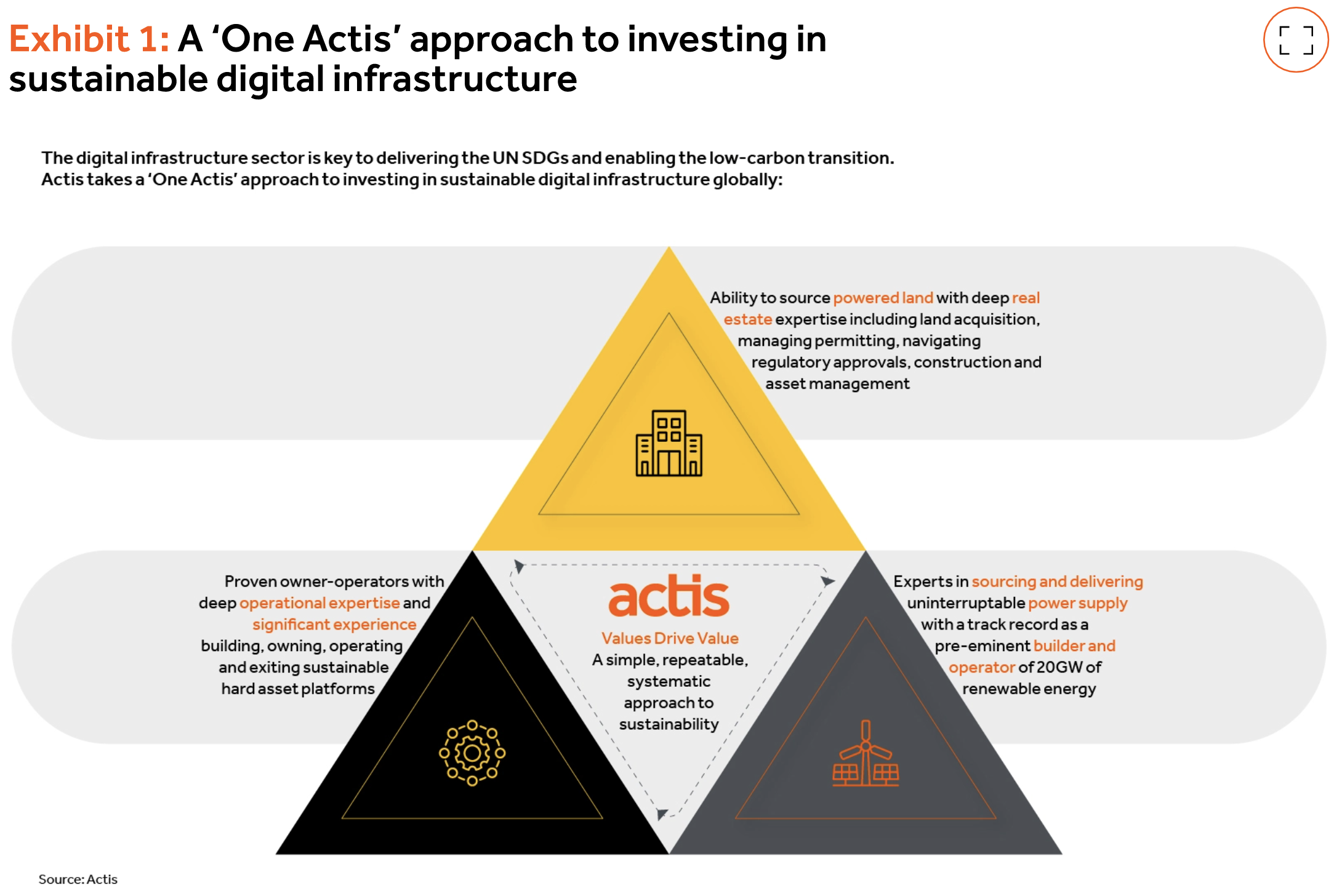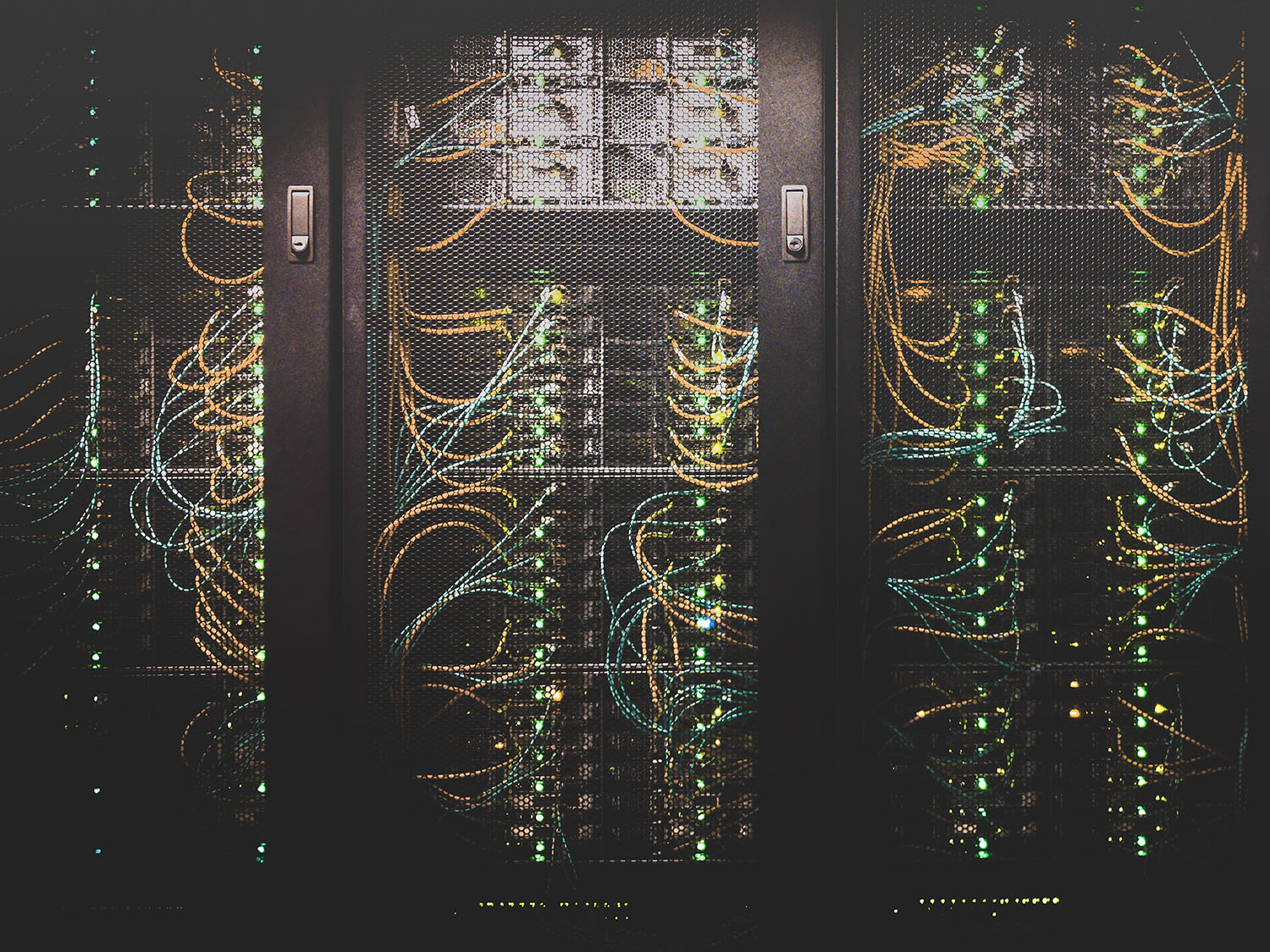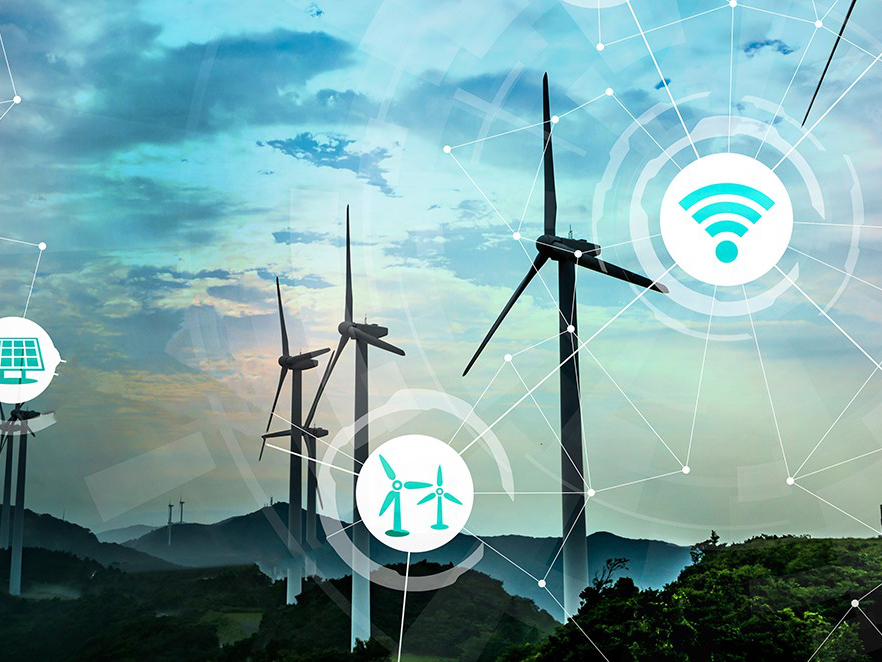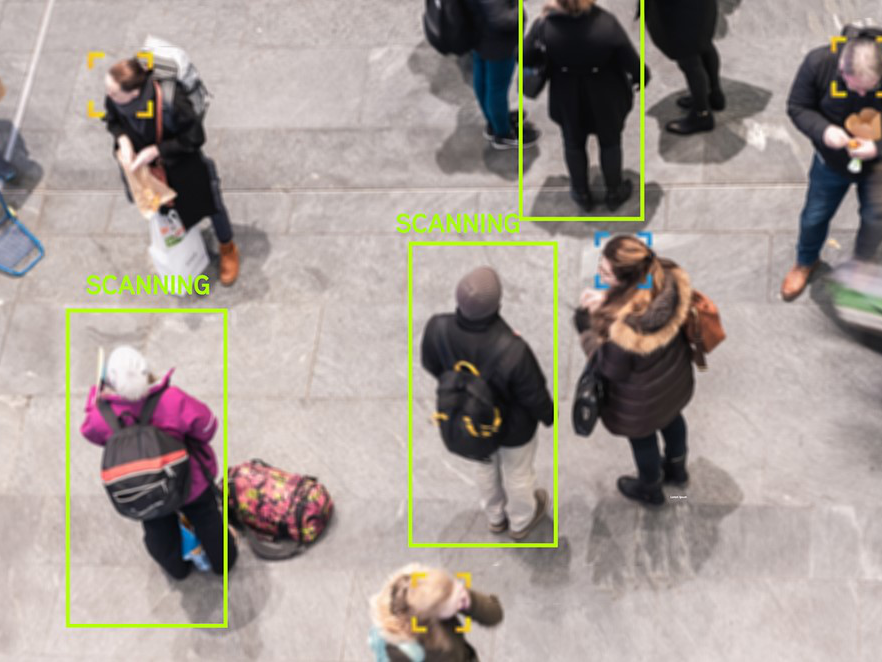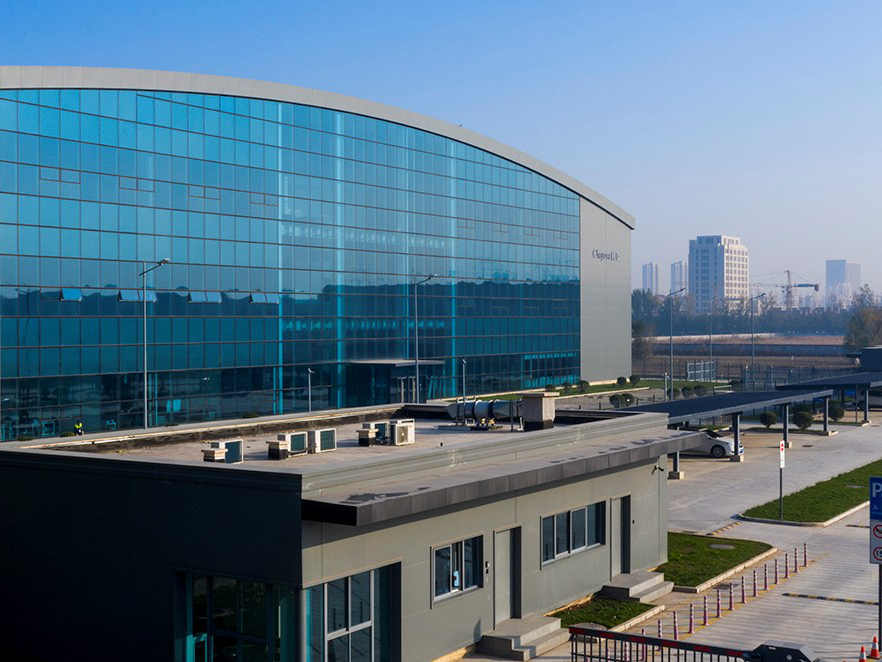Data centres already play an integral role in supporting global economic development, but what we’ve seen to date is set to pale into insignificance compared to what is to come. According to forecasts by McKinsey & Company, the world will consume 20 times more data in 2030 than it did in 2020, with much of this growth driven by new users as well as greater time spent watching higher definition video content. With data becoming increasingly indispensable, it is entirely appropriate to label it ‘the fourth utility’.
In this context, data centres have become a critical infrastructure asset class. But data centres are notoriously energy-hungry. In Denmark, for example, data centre energy use is projected to rise six times by 2030 to account for almost 15% of the country’s electricity use. Such increases in energy use create energy supply, cost and sustainability challenges – but for the same reasons, this means a sustainability-focused data centre strategy is a winning formula.
As a leading global investor in sustainable infrastructure, data centres form a core part of Actis’ investment strategy. We are perfectly positioned to link our real estate, energy and sustainability capabilities to create highly profitable and valuable data centre assets, and that is also in large part thanks to an offering aligned to hyperscalers’ demands.
A bright future for green data centres
Given data centres’ enormous energy demands, energy supply and efficiency are critical but so is the question of energy source. The data centre market is dominated by a handful of big technology companies – hyperscalers – capable of creating, processing and storing millions of terabytes of data every day. Hyperscalers are driving new data centre construction and consumption globally, both through their own construction and through leasing. Their data centre needs are vast and so are their energy needs – or low cost, renewable energy needs, to be precise. The hyperscalers have set aggressive net zero targets in the battle against climate change, with, for example, Microsoft, Google and Meta all pledging to reach net zero by 2030 and Amazon’s target set for 2040.
This is where Actis’ expertise across real estate, energy and sustainability comes into play to offer a compelling competitive advantage in the data centre market. Through our deep sector specialism and builder and operator model, we are ideally placed to develop data centre assets co-located with renewables. This not only helps cover the vital issue of energy security by reducing reliance (and burden) on the grid but also allows for greater control over energy costs and attracts hyperscalers looking for decarbonised data centres.
And focusing on hyperscaler customers is indeed important given that Amazon, Microsoft, Meta and Google are the four largest purchasers of corporate renewable energy PPAs, with almost 50GW contracted (equal to the generation capacity of Sweden). Given the fact that hyperscalers’ data needs are accelerating faster than their capability to build their own infrastructure, especially in markets such as Latin America, Asia and Africa where Actis is deeply implanted but where hyperscalers can lack an established presence and local market knowledge, the opportunity for green data centre providers is tremendous.
The deployment of cost-efficient renewables can create a more profitable data centre operation, allowing for a more competitive market offering targeted to hyperscalers as well as generating better investor returns. We’re putting this strategy to work to deliver for our investors, as exemplified in our acquisition earlier this year of 11 data centres throughout the Americas, many of which source their energy from wind power plants, and our Seoul data centre which utilises solar PV to meet power needs.
A focus on sustainability therefore helps create more attractive assets by reducing costs and meeting the criteria hyperscalers are looking for. But a focus on sustainability also delivers a further, additional energy benefit – energy efficiency.
Energy efficiency: the other energy trump card
Actis embraces a vision of investment as a catalyst to drive forward the growth of data centres and the reduction of their environmental impact through energy efficiency in addition to renewables. Driven by their net zero commitments, our hyperscaler target customers have drastically improved power usage effectiveness (PUE), a measure of energy efficiency, at their data centres and seek similar efficiencies from their providers.
PUE is a gauge which shows how efficient a data centre is by contrasting total data centre energy use (including cooling and ventilation) with energy use just from computing equipment. A perfectly efficient data centre would have a PUE of 1. At Actis, we work toward a 1.2-1.5 PUE range by using the most efficient cooling systems and ancillary processes,and have even achieved an impressive PUE score of 1.19 through Chayora, our portfolio company and data centre provider in China.
Our Rack Centre facility in Lagos is also an excellent example of efficiency. It is 35% more energy efficient than other regional data centres, and 16% more efficient than the global average. Thanks to our investments in energy generation, cooling and ventilation, Rack Centre became the first IFC EDGE-certified data centre in Europe, the Middle East and Africa – a recognition of excellence in resource efficiency.
By investing into both renewables and energy efficiency, we have created a straightforward but powerful formula. Focusing on sustainability creates data centres that maximise energy efficiency and utilise renewable energy to reduce major cost centres (energy and water), creating the operational efficiencies to drive competitive advantage and attract hyperscaler customers, which in turn generate higher profits and bigger asset valuations.
Going above and beyond for the “S” in ESG
While the environmental and energy implications of data centre expansion will be the primary sustainability concern for hyperscalers, they are also preoccupied by social considerations. Indeed, the social aspect of ESG is becoming increasingly prominent for hyperscalers and corporations more generally, including in requests for proposals, as they look to take a holistic approach to sustainability.
This once again puts Actis assets at a competitive advantage, thanks to sustainability being integrated into every investment decision we make and our commitment to creating sustainability leaders that improve the lives and livelihoods of the communities in which they operate. Our community focus is in strong alignment with what hyperscalers want from service providers, including with digital-related social impact programmes, such as digital literacy skills training in local communities.
The excess heat produced by data centres is also increasingly being explored for community use, notably in developed markets, with heat networks being introduced to heat local commercial and residential buildings for example.
Cheaper, cleaner, better
At Actis we are forthright in our belief that values drive value – our focus on sustainability is not driven merely by the fact that it is the ‘right thing to do’ but because it is a commercial imperative. The data centre market powerfully illustrates this.
In sourcing power from renewables and maximising energy efficiency, data centres benefit from lower operational costs and increased profitability. Add to this the fact that sustainable, decarbonised data centres are key to attracting hyperscaler customers and the argument compounds. Such green data centres make strong yield returning long life infrastructure assets but also maximise their value for a future exit. This is a winning strategy on all fronts.
